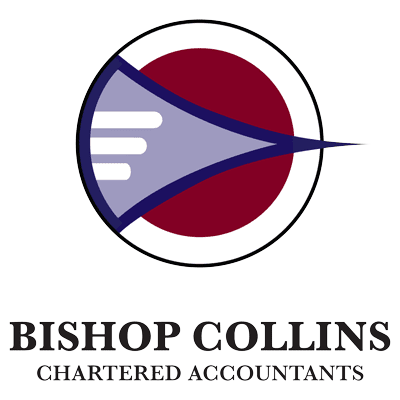
Glenn Harris
Director
To know if you are eligible for your small company audit exemption, you need to know whether you are still considered a small company or if you have moved into the criteria of a large company.
The Australian Securities and Investments Commission, (ASIC) has outlined what the difference between a small company and a large company are.
Unless a company satisfies the exemption requirements, the regulator requires companies to prepare and lodge a financial report and a directors’ report each financial year, and have these reports audited or reviewed.
Note: Specific lodgment requirements may differ for listed entities and those registered with the Australian Charities and Not-for-profits Commission (ACNC).
Are You A Small Company?
ASIC has determined that you’re a small company if the following set of criteria applies to your company.
- The consolidated gross revenue for the financial year for the company and any entities the company controls is less than $50 million.
- The value of consolidated gross assets at the end of the financial year of the company and any entities it controls is less than $25 million, and
- The company and any entities it controls have fewer than 100 employees (full time equivalent) at the end of the financial year.
Small companies are generally exempt from an audit if they meet two of the above criteria.
A small proprietary company is generally not required to prepare financial reports, unless directed to by ASIC, or directed to by shareholders. Accordingly, any small companies are exempt from the compliance requirements as are small foreign owned companies in certain circumstances. A company can easily overlook the requirements – particularly if you’ve never had to lodge financial reports with ASIC in the past.
Large company legislative requirements
The default legislative requirements detailed in the Corporations Act 2001 are that large proprietary companies must:
- Annually prepare a financial report (which includes the financial statements, the notes to the financial statements, and the directors’ declaration).
- Prepare an annual directors’ report.
- Appoint an auditor and have the financial report audited.
- Lodge the financial report with ASIC within 4 months after year-end.
- Distribute the financial report to members within 4 months after year-end.
Criteria Of Large Private (Proprietary) Companies
Currently a large company is defined by ASIC as:
- The consolidated revenue for the financial year of the company and the entities it controls (if any) is $50 million or more.
- The consolidated gross assets at the end of the financial year of the company and the entities it controls (if any) are $25 million.
- The company and the entities it controls (if any) have 100 or more employees (full-time equivalent) at the end of the financial year.
This of course is the opposite to what is stated above in defining what a small company is.
To ensure large company financial reporting requirements continue to be targeted at economically significant companies and keep pace with economic growth, a new definition of a large company was enacted from 1 July 2019.
Exemptions and relief available for small companies
There are several legislative instruments available which exempt or provide relief to companies from lodging audited financial reports. These include:
Grandfathered Companies (Section 319 relief)
Those who were an “exempt proprietary company” on 30 June 1994, and have continued to meet that definition ever since. This provides relief from lodging accounts, however there is still a requirement to have a financial report prepared and audited.
ASIC Corporations (Exempt Proprietary Companies) Instrument 2015/840
This provides similar relief to ‘grandfathered’ companies noted above. Specifically, for large private companies where a non-controlling ownership interest was held by a foreign company. The key requirements are that the company’s financial statements for 1993 and each subsequent year have been audited before the statutory deadline, and a notice was lodged with ASIC applying for this relief within 4 months of the end of the first financial year after 24 April 1997.
ASIC Corporations (Foreign-Controlled Company Reports) Instrument 2017/204
This applies to foreign-controlled small proprietary companies, so long as the company is not part of a large Australian group. In order to qualify, the directors must resolve and lodge form 384. This instrument provides relief from the preparation, audit, and lodgment of financial reports.
Handy Hint: Timing is everything to be eligible for this exemption. If the right form is not lodged between the period starting 3 months prior to the start of the financial year where relief is first applied and ending 4 months after the end of the relevant financial year, the audit exemption is unlikely to apply.
ASIC warns that, “in most cases, relief is not granted for financial reports that were due in the past”.
ASIC Corporations (Audit Relief) Instrument 2016/784
This instrument provides relief from the financial report being audited, although a financial report must be prepared and lodged. This instrument is usually utilised by non-disclosing large proprietary companies and non-disclosing small foreign-owned proprietary companies.
However, to qualify, the company must satisfy the following key conditions:
- The company has not had its financial report or financial statements audited for a financial year ending during 1993 or any later financial year.
- Unanimous shareholder & directors’ resolution within a prescribed period.
- Quarterly management accounts must be prepared.
- The directors must resolve that, at the end of each quarter, total liabilities do not exceed 70% of total tangible assets.
- The company must have made a profit for the current year or the prior year.
The year-end financial statements must be prepared by a prescribed accountant, who must issue a compilation report.
ASIC Corporations (Wholly owned Companies) Instrument 2016/785
This instrument provides relief to a subsidiary company from the preparation, audit, and lodgment of a report BUT requires the preparation and lodgment of consolidated financial statements by the holding company. Similarly, to Instrument 2016/784, This instrument is utilised by non-disclosing large proprietary companies and non-disclosing small foreign-owned proprietary companies. However, to qualify, the company must satisfy the following key conditions:
- The subsidiary is wholly owned.
- They are deeds of cross-guarantee in place between the holding company and the large proprietary subsidiary.
- The deed of cross-guarantee must be enforceable in the holding company’s place of incorporation.
- The holding entity has prepared and lodged consolidated financial statements which comply with the instrument. It is assessed on a case-by-case basis depending on whether the holding entity is an Australian company, or a registered foreign company, and if required in their jurisdiction, are audited.
ASIC Override (Section 340 “Exemption Orders” Relief)
This section provides relief for the preparation, audit, and lodgment of a financial report. This applies to entities otherwise required to comply with the financial reporting provisions of the Corporations Act. to qualify, the company must apply to ASIC and demonstrate compliance with the Corporations Act or this would:
- render the financial report or other reports misleading
- be inappropriate in the circumstances; or
- impose unreasonable burdens.
Handy Hint: Unsurprisingly, this relief is rarely granted.
Significant Global Entities
A Significant Global Entity is a group of entities consolidated for accounting purposes with annual global revenue and other income of over A$1 billion. Any Australian entity that is part of a Significant Global Entity must lodge general purpose financial statements with either ASIC or the ATO. These requirements commenced with effect from 1 July 2016 with an emphasis on improving financial transparency. It operates entirely independently of the tax transparency measures, such as Country by Country reports, the International Dealings Schedule, or Transfer Pricing Documentation. Consequently, none of the small company exemptions discussed above apply to Significant Global Entities.
If you would like to discuss your companies reporting obligations and eligibility for an audit exemption, or explore your current audit or compliance requirements, Bishop Collins would be delighted to have an obligation-free and confidential discussion. Get in touch with our audit Director Martin Le Marchant.


